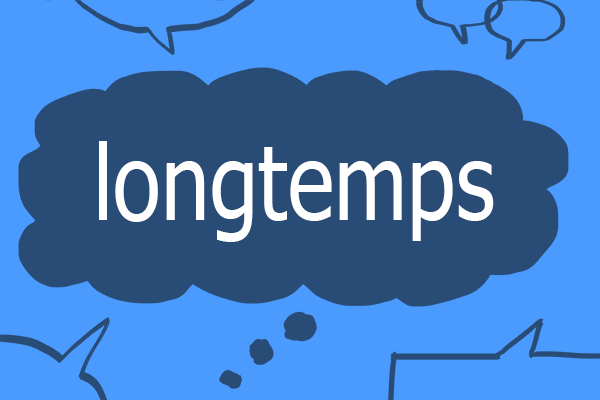Welcome back to our French learners. Ready expand your vocabulary and understanding of the language? In today’s word of the week blog, we’re looking at the word longtemps.
Have a listen to the audio clip to hear how this word should sound in French:
Depending on how long you’ve been learning French, you might feel like you recognise something about this word. Longtemps is made up of two words with different meanings, which come together to make a single word combining their meanings.
Longtemps is an adverb that means (for) a long time in English. It’s clear to see how this makes sense after looking at the two words that make up the adverb:
- long – a French adjective meaning ‘long’ in English
- temps – a French masculine singular noun meaning ‘time’ in English
Knowing this should help you remember the meaning of longtemps, as well as helping you learn two new French words if you don’t know them already!
In terms of word order, French adverbs usually sit after the verb they’re related to. You’ll see how to use longtemps effectively in our examples below.
First of all, it’s important to learn the common uses of longtemps along with other prepositions and adverbs:
trop longtemps (for) too long
très longtemps (for) (a) very long time
pendant longtemps for a long time (in terms of how long something lasts; duration)
avant longtemps before long
depuis longtemps for/since a long time/ages
You’ll see some of these in action below, as well as other uses of the adverb in everyday French:
ça fait longtemps que… [+ verbe a l’indicatif] it’s been a long time since… [+ verb in the indicative mood]
Ça fait si longtemps qu’on s’est vus. It’s been so long since we saw each other.
Malheureusement, cette crise pourrait durer longtemps. Unfortunately, this crisis could last for a long time.
Nous ne voulons pas y rester pendant très longtemps. We don’t want to stay there for very long.
Ne vous vous inquiétez pas. Il n’y a pas longtemps qu’il est parti. Don’t worry. It’s not been long since he left.
« Est-ce que tu attendais longtemps ? » « Oui, trop longtemps ! J’étais au point de me fâcher… » “Were you waiting for a long time?” “Yes, too long! I was starting to lose my temper…” We hope our examples have helped illustrate how you might encounter or use this word. Whether you’ve been studying French for a long time, or you’re new to learning the language, we hope you’ll come back next week to bolster your vocabulary with another new word!
Written by Holly Tarbet, freelance copywriter and editor.
All opinions expressed on this blog are those of the individual writers, and do not necessarily reflect the opinions or policies of Collins, or its parent company, HarperCollins.



